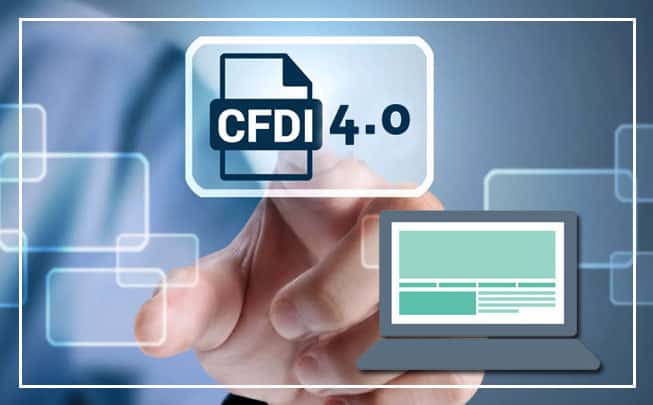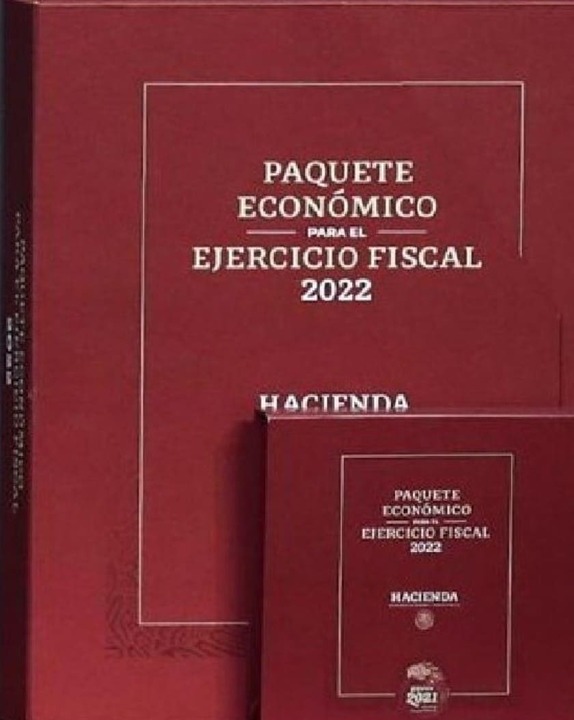On September 8, 2021, the Federal Executive, through the Ministry of Finance and Public Credit, presented to the Congress of the Union the proposal for an economic package for the year 2022, which is mainly integrated into the General Criteria of Economic Policy (CGPE), the Income Law of the Federation for the year 2022 (LIF), the Budget of Expenditures of the Federation for the year 2022 (PEF) and the initiative to reform the Income Tax Law (LISR), the Value Added Tax Law (LIVA), the Law of the Special Tax on Production and Services (LIEPS), the Fiscal Code of the Federation (CFF) and the Federal Law of Rights (LFD), which was turned over to the Chamber of Deputies for review and approval.
Below we point out the changes that we consider most relevant with respect to the proposed amendment to the various tax provisions
LISR
General
- It is expected that the exchange gain and loss may not be less than or exceed, respectively, that which would result from applying the exchange rate established in the Bank of Mexico that is published in the Official Gazette of the Federation.
Moral Persons
- Taxpayers may credit against the annual tax that determine, first, the amount of provisional payments made and, subsequently, the amount of ISR paid abroad.
- Interest derived from operations that lack a business reason will be considered backed credits and, consequently, will receive the treatment of dividends.
- The tax authorities will authorize the disposal of shares at tax cost, only in cases of restructuring of companies that are resident in Mexico belonging to the same group.
The opinion made by a public accountant registered with the tax authorities, in addition to the requirements in force in the provisions, must include the book value of the shares subject to authorization; the organization chart of the group showing the percentage of the participation in the share capital of the partners or shareholders, as well as the direct and indirect holding of the companies that make up that group before and after the restructuring; the business and turnover segments of the issuing company and the acquiring company, and it is certified that these companies consolidate their financial statements.
When the tax authority, in the exercise of its powers of verification, detects that the restructuring lacks a business reason, or that it does not comply with any of the requirements referred to in this article, the authorization will be null and void and the tax corresponding to the sale of shares must be paid.
Additionally, taxpayers who within five years after the restructuring is carried out a relevant operation is concluded, the company acquiring the shares must submit the information on relevant operations referred to in article 31-A of the CFF.
A relevant transaction is understood, among others, when the right to the assets or profits of the issuing company, the acquiring company or the alienating company is granted, in case of any type of capital reduction or liquidation, at any time; likewise, when the book value of the shares of the issuing company is reduced or increased by more than 30%, in relation to the book value determined on the date of the aforementioned authorization application.
-Article 14 of the LISR is amended to specify that the authorization provided for in that provision refers to the profit coefficient, but not to the decrease in provisional payments resulting from the variation of that coefficient.
In the event that taxpayers make the provisional payment in a smaller amount, derived from said authorization, they must submit the complementary declaration to cover the surcharges for the difference between the payments made applying the lower coefficient and those that would have corresponded to them if they had not applied said coefficient.
- Cumulative income will be considered the value of the right of usufruct that is determined in the appraisal that must be practiced by the authorized person, at the time of consolidating the bare ownership and usufruct of a good. In this case, it will be the knot owner who will be obliged to carry out the appraisal and accumulate the income.
Additionally, notaries, judges and other notary public before whom the dismemberment of the attributes of an asset has been celebrated, must inform the tax authority about the details of the transaction.
- Deduction requirements
- Technical assistance
The exception that allows the deduction of payments for technical assistance, technology transfer or royalties is modified, when they are made to residents in Mexico and in the contract it has been agreed that the provision would be made by a third party, to establish now, that such payments may be deducted in the case of specialized services or the execution of specialized works, that are not part of the corporate purpose or the preponderant economic activity of the beneficiary of the same, in accordance with article 15-D of the CFF.
For the purposes of deducting uncollectible accounts, it will be understood that there is a notorious practical impossibility of collection at the moment in which the taxpayer exhausts the legal means to obtain the collection and that even having the right to it, it was not possible to recover it. For these purposes, the taxpayer must obtain the final resolution issued by the competent authority, with which he demonstrates that he has exhausted the collection procedures or, where appropriate, that it was impossible to execute the favorable resolution.
- Interest on insufficient capitalization
For the calculation of the accounting capital for the year based on the balances of the tax attributes, tax losses pending reduction that have not been considered in the determination of the tax result are included.
This option may not be exercised where the result of the abovementioned transaction exceeds 20% of the book capital of the financial year in question, unless, during the exercise of powers of verification, it is established that the situations causing the difference between those amounts have a business reason and it is demonstrated that the integration of the CUCA, CUFIN, CUFINRE and tax losses pending reduction, have the corresponding support.
- For the purposes of the deduction of investments, the original amount of the investment will include the expenditures for the preparation of the physical site, installation, assembly, handling, delivery, as well as those related to the services contracted for the investment to work.
In the case of alienation of assets that are no longer useful to obtain income, taxpayers, in addition to maintaining without deduction a peso in their records, must present notice to the tax authorities, in order to carry out the deduction of the amount not yet deducted from said assets.
- The acquisition of the right of usufruct over immovable property shall be considered a fixed asset.
- Fixed assets for installations, additions, repairs, improvements, adaptations, as well as any other construction carried out on a mining lot will be subject to the depreciation rate of 5% per year.
- In the case of division of companies, the tax losses pending reduction of tax profits must be divided between the spin-off companies and the spin-offs that are dedicated to the same turn.
The division of tax losses referred to above shall be carried out in the proportion in which the sum of the total value of the inventories and accounts receivable related to the commercial activities of the spin-off is divided when the spin-off predominantly carried out those activities, or of the fixed assets when the spin-off company predominantly carried out other business activities, excluding investments in real estate not related to the predominant activity.
- Various cases are included in which it will be considered that there is a change of partners or shareholders who have control of a company.
It is not considered that there is a change of shareholders in the cases of inheritance, donation or corporate restructuring, merger or division of companies that are not considered alienation, provided that in the case of restructuring, merger or division the partners or direct or indirect shareholders who maintained control prior to said acts, maintain it with posterity to them.
- In order to facilitate compliance with the payment of the tax, legal entities resident in Mexico and those that initiate operations, only constituted by natural persons, whose total income in the immediately preceding year does not exceed 35 million pesos, may accumulate their income when they are actually received and paid, that is, through cash flow.
The tax for the year will be determined in terms of article 9 of the LISR, that is, as if it were a legal entity of the general regime and the deductions will be subject to the requirements indicated in the regime itself. The following may not be taxed under this regime:
- Legal persons when one or more of their partners, shareholders or members, participate in other commercial companies where they have control of the company or its administration.
- Taxpayers who carry out activities through a trust or joint venture.
- Credit institutions, those who pay taxes under the optional regime for groups of companies, the coordinated, those that carry out activities in the primary sector, and legal entities for non-profit purposes.
- Cooperative production societies.
Individuals
- It is proposed to reform the rule of tax residence for natural persons in the following terms:
- The status of tax resident in Mexico will not be lost as long as the resident natural person does not prove said change or, if he does not present the notice of suspension of activities to the Federal Taxpayers Registry (RFC) of change of residence.
- Those who prove (whether natural persons without distinction of nationality or legal entities) a new tax residence in a country or territory considered a preferential tax regime will maintain their tax residence for 5 years additional to the year in which the corresponding notice is presented.
- Notwithstanding the foregoing, when the change of residence is a territory where income is subject to a preferential tax regime, the period of 5 years is not applicable as long as in that territory there is in force: a) comprehensive agreement on the exchange of information, and b) an international treaty containing a mutual agreement to assist in the collection of contributions.
The proposal is consistent with the tax authority’s interpretation in past years of demonstrating for the natural person tax residence in another country in order not to continue tax residence in Mexico.
The notice of suspension to the RFC will become more relevant to support the moment of the change of tax residence.
- It is planned to eliminate the specific limits that apply to personal deductions for individuals who make donations and complementary contributions to the withdrawal. These personal deductions will be included in the general limit for personal deductions of natural persons (whichever is less than 15% of income or 5 high UMAs per year).
- It is proposed to eliminate the Tax Incorporation Regime (the regime designed to motivate the incorporation of people with low incomes in tax formality) and replace it with a new Simplified Trust Regime for natural persons. The objective of the new regime is to provide a simple way for individuals who carry out various business activities and / or receive income from leasing real estate, with income that is less than MXN3,500,000 per year, to meet their tax obligations.
The regime will be applicable to natural persons who carry out various activities including:
- business activity;
- provision of services directly or through technological platforms;
- granting of the temporary enjoyment or use of property;
- agricultural, livestock, forestry or fishing activities, and
- federal cargo land transport.
The simplified regime seeks to reduce the administrative burden for taxpayers and uses the CFDI as its main axis for the calculation of the tax and the tax compliance process.
The tax rate under the simplified regime ranges from 1% on income below MXN300,000 annually to 2.5% on income between MXN2,500,000 and MXN3,500,000 annually.
Some specifically listed natural persons will not be able to participate in the simplified regime.
Residents abroad
- Residents abroad who are taxed in accordance with the provisions of Title V of the LISR will be obliged to determine their income, profits, and where appropriate, deductions derived from transactions with related parties, considering the consideration or profit margin that would have been obtained between independent parties.
- In the case of income from a source of wealth in Mexico from the acquisition of real estate obtained by a resident abroad, in the event that the authority determines a difference between the agreed value and the appraisal value of the property, the person obliged to pay the tax will be the alienator if he is a resident in Mexico or resident abroad with a permanent establishment in the country.
- In the case of income from a source of wealth in Mexico due to the disposal of shares between related parties, it is proposed to add the obligation to accompany the respective opinion, the supporting documentation with which it is demonstrated that the sale price of the alienated shares corresponds to market value.
In the case of the disposal of shares issued by Mexican companies that is carried out through the concessioned stock exchanges or recognized derivatives markets, the SAT will determine the cases in which the withholding of taxes will not be applicable through rules of a general nature.
In relation to the deferral of the tax derived from the disposal of shares made on the occasion of a reorganization of companies that are part of the same group, the shares will be considered to be outside it, and in that case the tax that was deferred has to be paid, when the issuing company and the company acquiring the shares stop consolidating their financial statements.
Additionally, the authorization to defer the ISR in the disposal of Mexican shares between entities of the same group will be null and void when, in the exercise of their powers of verification, the authorities review the relevant operations of 5 years prior and 5 years after the restructuring and determine that there was no business reason or that the exchange of shares generated an income subject to a REFIPRE.
In addition, when a relevant operation is carried out, as defined in Article 24 of the LISR, within 5 years of the restructuring, the acquiring company or its legal representative must report said operation in the terms of Article 31-A of the CFF.
The opinion formulated on the occasion of the aforementioned restructuring must include the business and business segments of the issuing company and the acquiring company and certify that these companies consolidate their financial statements.
- Persons who are legal representatives of residents abroad will voluntarily assume joint and several liability, which will not exceed the contributions that the resident abroad must pay and have sufficient assets to respond as mandatory solidarity.
Preferential Tax Regime (REFIPRE)
- For the purposes of determining whether the income of a foreigner is subject to REFIPRE, as well as to determine its tax result for the purposes of Title II, the annual adjustment for inflation, nor the exchange gains or losses derived from the fluctuation of the foreign currency, with respect to the national currency, will not be considered.
- The explicit reference to “foreign” related parties will be removed so that the provisions also cover domestic related parties and as part of the transfer pricing documentation information is requested from related parties and not only from the taxpayer.
The interquartile range is pointed out as the appropriate one to analyze the margins bringing to law a provision that was previously in regulation. Additionally, the presentation of the local informative declaration will be made on the same dates applicable to the presentation of the tax opinion.
On the other hand, the authority proposes that the comparable used in the transfer pricing documentation be from the same year as the year in which compliance is given, a situation that could present a practical problem due to the lack of information at the time of preparing the study or the information.
On the same subject of comparable, the proposal points out additional considerations to make known to taxpayer’s confidential information that the authority has and that may be sensitive or affect the position of third parties, in order to regulate the use of secret comparable calls and includes a proposal to sign a confidentiality agreement in such cases.
It highlights the proposal to eliminate, for maquiladora companies and those that have a program under the modality of shelter, the possibility of requesting a particular resolution in terms of article 34-A of the CFF to comply with their transfer pricing obligations and avoid the configuration of a Permanent Establishment of the foreign resident and noting that the so-called “safe harbor”, with an asset or cost base (whichever is greater) is the only way to meet this requirement.
LIVA
- The acts or activities not subject to the tax are defined as those that the taxpayer does not carry out in national territory, as well as those other than the alienation of goods, provision of services, the use or temporary enjoyment of goods made in national territory, in which the taxpayer obtains income or consideration, for which he makes expenses and investments in which the Value Added Tax (VAT) was transferred or the one that would have been transferred. paid on importation.
In general terms, the VAT transferred to the taxpayer for the expenditures made will proceed only for those related to taxed activities. That is, the VAT paid that is linked to the development of activities exempt or not subject to the Law may not be credited.
- In order to carry out the accreditation of the VAT paid on the importation of goods, the petition must be in the name of the taxpayer and the payment of the corresponding VAT must be recorded in it.
- Residents abroad without establishment in Mexico who provide digital services to receivers located in national territory, will have the obligation to provide the SAT no later than the 17th of each month, information on the number of services or operations carried out with the recipients located in national territory that receive their services, classified by type of services or operations and their price, as well as the number of recipients mentioned, and maintain the base records of the information presented. Previously, this obligation was fulfilled quarterly.
Failure to comply with this obligation for three consecutive months will result in the temporary blocking of access to the digital service provider of the digital services, until such time as this obligation is not complied with.
- It is understood that the temporary use or enjoyment of a tangible good in national territory is granted, when its use or enjoyment is made in it, regardless of the place of its material delivery or the celebration of the legal act that gives rise to it.
- The disposal of sanitary pads, tampons and cups, for menstrual management will be subject to the rate of 0%.
- To give greater legal certainty in the application of the 0% rate in the disposal of products intended for food, it is clarified that it will be in that destined for both human and animal food.
- Derived from the incorporation of a new tax regime for natural persons, for the purposes of the LISR, the references alluded to the incorporation regime are eliminated from the VAT Law.
CFF
- When, on the occasion of the exercise of its powers of verification, the tax authority detects that the merger or division operations have no business reason, or the breach of any of the requirements established in Article 14-B of the CFF is noticed, it will be considered that there was a disposal.
- The transfer that must be made in a division is that of the share capital, which is in accordance with the provisions of the General Law of Commercial Companies.
- In line with the proposed reform to article 167 of the LISR, it is proposed to incorporate within the concept of royalties from the use or granting of use of a copyright in a literary, artistic or scientific work, the right to the image.
- With the aim of continuing to establish measures to eradicate the issuance and acquisition of tax receipts that protect non-existent operations, the refusal to grant the e.firma, or where appropriate, the certificates of digital stamps, is established when the tax authority detects that the taxpayer legal entity that requests the procedure, has partners or shareholders, who have the effective control of said taxpayer, and in turn, would not have distorted or remedied the observations of the authority that motivated the temporary restriction of the certificate; it is detected that the taxpayer issuing the vouchers did not prove the reality of the operations covered by the respective tax receipts, or they do not manage to distort having transmitted undue tax losses, without having regularized their tax situation.
- Regarding the cancellation of digital stamps, the following is foreseen:
- In the case of taxpayers who have exhausted the procedure that is applicable to them without having corrected or distorted the irregularities detected by the authority, the cancellation of the Digital Seal Certificates will proceed automatically, therefore, there will be no additional procedure to distort or correct because they were already able to do so on two occasions in accordance with the aforementioned legal provisions.
- Where the tax authority has issued a decision resolving the substance of the matter, taxpayers may only carry out the procedure to obtain a new certificate, provided that they first correct their tax situation.
- The following assumptions are added that will lead to the cancellation of the certificates issued by the SAT:
- When, on the occasion of the exercise of its powers of verification, the tax authority detects that the merger or division operations have no business reason, or the breach of any of the requirements established in Article 14-B of the CFF is noticed, it will be considered that there was a disposal.
- The transfer that must be made in a division is that of the share capital, which is in accordance with the provisions of the General Law of Commercial Companies.
- In line with the proposed reform to article 167 of the LISR, it is proposed to incorporate within the concept of royalties from the use or granting of use of a copyright in a literary, artistic or scientific work, the right to the image.
- With the aim of continuing to establish measures to eradicate the issuance and acquisition of tax receipts that protect non-existent operations, the refusal to grant the e.firma, or where appropriate, the certificates of digital stamps, is established when the tax authority detects that the taxpayer legal entity that requests the procedure, has partners or shareholders, who have the effective control of said taxpayer, and in turn, would not have distorted or remedied the observations of the authority that motivated the temporary restriction of the certificate; it is detected that the taxpayer issuing the vouchers did not prove the reality of the operations covered by the respective tax receipts, or they do not manage to distort having transmitted undue tax losses, without having regularized their tax situation.
- Regarding the cancellation of digital stamps, the following is foreseen:
- In the case of taxpayers who have exhausted the procedure that is applicable to them without having corrected or distorted the irregularities detected by the authority, the cancellation of the Digital Seal Certificates will proceed automatically, therefore, there will be no additional procedure to distort or correct because they were already able to do so on two occasions in accordance with the aforementioned legal provisions.
- Where the tax authority has issued a decision resolving the substance of the matter, taxpayers may only carry out the procedure to obtain a new certificate, provided that they first correct their tax situation.
- The following assumptions are added that will lead to the cancellation of the certificates issued by the SAT:
-
- In the case of natural persons with business activities whose income comes from the disposal of assets in accordance with Title IV, Chapter II, Section IV of the LISR, the temporary restriction will be made when the omission of the payment of the ISR in its annual declaration is detected or it is not presented being obliged to do so.
- Detect that the legal entity has a partner or shareholder who has effective control of it, and whose certificate has been left without effect because it is located in any of the cases of article 17-H, first paragraph, fractions X, XI or XII of the CFF, or, in the cases of article 69, twelfth paragraph, fractions IX or X of said order, and has not regularized its tax situation, or that said partner or shareholder has effective control of another legal entity, which is in the cases of the articles and fractions referred to above and this has not corrected its tax situation.
- The following situations may result in the temporary restriction of digital seal certificates.
- Locate in the infringing behaviors established in article 85, section I of the CFF, derived from the fact that these behaviors reflect the contumacy of taxpayers to cooperate with the tax authorities during the development of the exercise of their powers of verification.
- When the taxpayer does not go before the tax authority to try to prove that he actually concluded the operations with the company that is on the definitive list published by the SAT for issuing tax receipts derived from operations that are considered non-existent.
- The authority detects inconsistencies regarding the value of the acts or activities taxed, as well as the tax withheld by the taxpayer, manifested in the declarations of provisional or definitive payments, withholdings or the exercise, or the informative ones, in relation to the information held by the SAT, and with it, provide legal certainty to taxpayers.
- When the taxpayer has partners or shareholders, who have the effective control of said taxpayer, and whose certificate has been left without effect because it is located in any of the cases of article 17-H, first paragraph, fractions X, XI and XII of this Code, or those established in article 69, twelfth paragraph, sections IX and X of the Code, and have not regularized their tax situation, in order to impose as a measure the restriction of stamps.
When the taxpayer does not answer the request of the authority or fails to attend within the period, for this the extension that he has requested, and his request for clarification is considered not to have been submitted, the forty-day period referred to in the second paragraph of this article will continue to run as if the clarification had never existed.
The tax authority will resolve the summary procedure with the elements provided by the taxpayer and that work in the file opened in his name, including the final resolutions issued or judgments, which, where appropriate, served to motivate the aforementioned procedure, in order to determine if the restrictive measure is lifted or if it is appropriate in terms of article 17-H, fraction X of the Code.
With this, it is clarified that the procedure established in article 17-H Bis of the Tax Code does not have the nature and scope of a means of legal defense, so that through this procedure the final resolutions issued by the tax authorities cannot be modified.
- Taxpayers who are subject to the exercise of powers of verification may correct their tax situation by offsetting the amounts – even if they deal with different contributions – that they are entitled to receive from the tax authorities for any reason, against the omitted contributions and their accessories, determined by the tax authority through a request and through a procedure described in the proposal.
The option in question will not constitute an instance, and therefore, the acts issued by the tax authority cannot be challenged.
- The deadline for the application of the incentives will be counted from the last day of the year in which the right to apply the stimulus was born and not from the day on which the deadline for the presentation of the annual return expires, so that the term is computed for complete fiscal years.
- For the purposes of defining joint and several liability in the acquisition of a negotiation, the cases that may arise from such a situation are listed.
Those who are appointed in compliance with the tax provisions and those who are designated for tax purposes, up to the amount of the contributions or benefits referred to in the tax provisions, are also jointly and severally liable with taxpayers.
The manifestation of will to assume joint and several responsibilities will be made through the formats published by the SAT through general rules.
- In the event that vouchers are issued without having the documentary support that accredits the refunds, discounts or bonuses referred to in article 25 of the LISR, the taxpayer’s income may not be reduced.
- In those cases, in which the information corresponding to the service is not coincident, alienation with the economic activity registered in the RFC, the authority will proceed to update the economic activity of the taxpayer.
It is proposed to include the name, reason or corporate name and the postal code of the taxpayer in favor of whom the CFDI is issued as requirements of this, in order to have greater elements of control.
There will be a deadline to cancel the vouchers that have a defect in their issuance or a valid justification of it, indicating as such, until before the presentation of the annual declaration of the year in question and provided that the person in favor of whom they are issued accepts their cancellation.
For this purpose, taxpayers must justify and support the reason for such cancellation, which may be verified by the tax authorities in the exercise of their powers.
- The information and documentation referred to in articles 32-B, section V and 32-B Bis of the CFF, relating to contact details and information of residents abroad and foreign financial accounts, must be kept for a period of six years from the date on which the respective information and documentation was generated or should have been generated, or, from the date on which the statements relating to it were or should have been filed, as the case may be.
- Taxpayers who meet certain parameters will again be required to audit their financial statements by an authorized public accountant.
In order for the tax administration to comply with international standards that require minimum levels of transparency in relation to the controlling beneficiaries of commercial companies, trusts and other legal figures for tax purposes, it is proposed to include the obligation of such entities, to obtain and keep, as part of their accounting and to provide the SAT, information relating to its controlling beneficiaries in a reliable, complete and up-to-date manner. For such purposes, the definition of controlling beneficiary is included.
- As a measure of best practice in terms of voluntary and cooperative compliance, it is intended to empower the SAT to implement the international compliance certainty program, to establish tax certainty and dispute prevention programs, which may be of benefit to taxpayers who wish to participate, since they could obtain certainty regarding the fulfillment of their tax obligations in some of their operations.
The SAT is empowered to establish the terms, conditions and procedures for taxpayers to benefit from these programs.
- The authorities may determine simulation of legal acts for tax purposes, establishing the requirements that must be contained in such determination, including the identification of the simulated act and the act actually performed, the quantification of the tax benefit, and the elements that supported that conclusion.
The tax authority shall have the power to rely on elements of presumption in determining the simulation.
- As part of the procedure through which during the course of the home visit the tax authority discloses to the taxpayer or his designated representatives confidential information provided or obtained from independent third parties with respect to comparable transactions affecting the competitive position of such third parties, in order to safeguard and protect that information that is highly sensitive, it includes the possibility of signing a confidentiality agreement and limiting the uses that the taxpayer may give to said information, as well as the periods in which he will have access to it.
- Regarding the payment of installment contributions, it is specified that when the taxpayer self-determines or self-corrects, 20% must be paid by filing the respective return.
- With regard to the expiry of the powers of verification of the tax authorities, it is foreseen that:
- The expiration period is also suspended when a resolution is requested to a consultation on transfer pricing, which will be computed from the moment in which the application was submitted and until the notification of the conclusion of the procedure takes effect.
- In cases where the limitation period is suspended for two years or more, the limit of the expiry period may not exceed the period of seven years, seven years with six months or eight years, as the case may be.
- The expiration periods will not affect the implementation of the agreements reached as a result of the comprehensive information exchange agreements that Mexico has in force and that authorize the exchange of information in tax matters or those reached based on the inter-institutional agreements signed on the basis of said broad information exchange agreements.
- The term of the conclusive agreement procedure will have a limit of twelve months counted from the date the taxpayer submits the respective application to PRODECON.
- In various precepts that regulate the procedure of conclusive agreement and request for reduction of fines, the term “forgiveness” is replaced by “reduction”, in order to distinguish these benefits from the forgiveness prohibited by article 28 of the Political Constitution of the United Mexican States and that the granting of the same is not limited by incorrect interpretations of the Constitution.
- As of the 2022 fiscal year, the following changes are proposed in the area of tax offences and offences:
- It is added as a case of origin of the reduction of fines and surcharges, that a dispute resolution procedure established in an agreement to avoid double taxation has not been filed.
- In terms of reducing fines, the benefits of the reduction of penalties will only proceed when a dispute resolution procedure established in an agreement to avoid double taxation has not been filed.
- The proposal includes various modifications to the situations that give rise to fines, as well as their amounts and increases and reductions to them.
- In the case of the MAP request:
- The period for lodging the appeal shall be suspended when the foreign competent authority notifies the Mexican Authority of the request for the initiation of such proceedings, or in the event that the proceedings have been initiated in Mexico, the suspension shall commence upon receipt of the request for initiation by the Mexican Authority.
- The suspension of the period shall cease when the notification of the act by which the competent authority of Mexico informs the applicant of the conclusion of the procedure takes effect, including, in the event that it is terminated at the request of the interested party, or when it has been declared inadmissible.
- The filing of the MAP does not exempt the individual from guaranteeing the tax interest in accordance with the applicable provisions of this Code.
- In podium notifications, the obligation for the tax authority to make such notification on a site open to the public of the offices of the notifying authority is removed. It also increases the period from 6 to 10 days for the tax authority to keep on its website the document it intends to notify under this modality.
- In the case of the MAP application, the power of the tax authorities to partially forgive tax credits relating to contributions to taxpayer’s subject to a bankruptcy procedure is eliminated.
- The tax authority is empowered so that in the case of tax credits payable it can carry the seizure of the assets by tax mailbox, stands or edicts, provided that said assets are bank deposits, shares, bonds and coupons due, real estate and intangibles, and that previously via tax mailbox, platforms or edicts the authority informs the debtor of the declaration of attachment where the affected assets are detailed.
LIF
- In terms of fiscal stimulus, the contents of the LIF remain unchanged with respect to:
- The acquisition or import of diesel and biodiesel for final consumption that are used for machinery in general, except vehicles, as well as that acquired by taxpayers who carry out activities in the primary sector and that which is used for automotive use in vehicles intended for public and private transport of people or cargo, as well as tourism.
- Taxpayers who are dedicated exclusively to public and private land transport of cargo or passage, who use the national network of toll highways and who make use of the toll road infrastructure.
- Acquirers who use fossil fuels in their production processes for the production of other goods and who in their production process are not intended for combustion.
- Taxpayers holding mining concessions and allocations whose total annual gross income from the sale or disposal of minerals and substances referred to in the Mining Law is less than 50 million pesos.
- The withholding rate of the ISR for interest paid by the financial system will be 0.08%. The rate in force in 2021 was 0.97%.
- For the year 2022, the surcharge rates in cases of extension for the payment of tax credits will be the same as for the year 2021, in accordance with the following:
- 98% monthly on unpaid balances.
- The surcharge and update rates in the case of partial payments will be the following, depending on the term:
- Up to 12 months: 1.26% monthly.
- From more than 12 months and up to 24 months: 1.53% monthly.
- In partialities greater than 24 months, as well as in the case of deferred term payments: 1.82% per month.
We remain at your service for any clarification or comments that may be required regarding this publication.
* * * *
September 2021 Mexico City, Mexico











